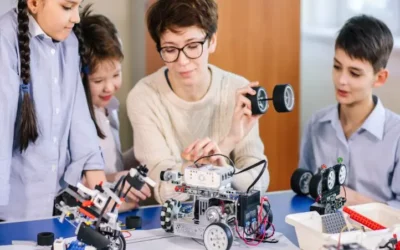Welcome to the Robot Camp, where creativity knows no bounds and learning is an exhilarating experience. Have you ever wondered what it’s like to build your own robot, program it to perform tasks, and witness your creation come to life? Well, get ready to dive deep into the realm of circuits, sensors, and artificial intelligence as we explore the endless possibilities that await you at Robot Camp!
In this article, we will take you on a riveting journey through the incredible world of robotics. From understanding the basics of coding to building advanced robotic models, we’ll provide you with a concise overview of the exciting topics covered at Robot Camp.
Table of contents
The Fascinating World of Robotics
Welcome to the fascinating world of robotics at Robot Camp! In this immersive experience, young enthusiasts will embark on a journey to explore the foundations of robotics
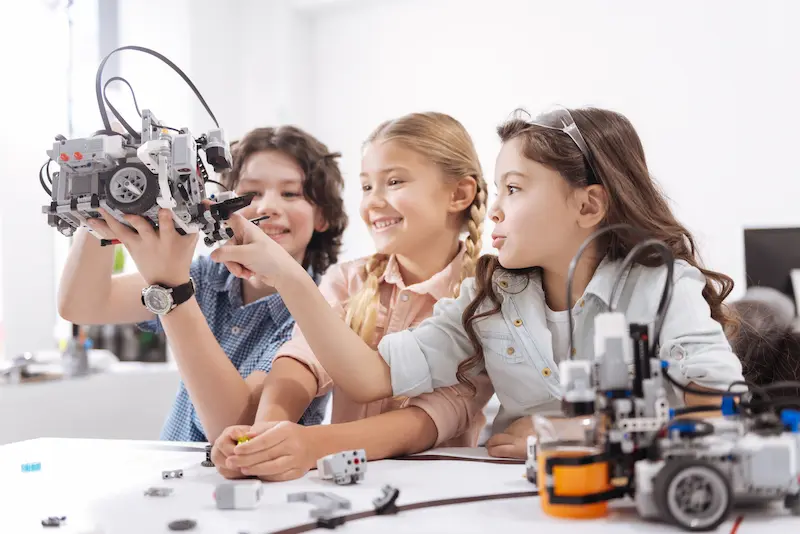
Exploring the Foundations of Robotics
They will delve into the principles of programming, mechanics, and artificial intelligence, gaining hands-on knowledge in building and controlling robots. Furthermore, participants will discover the evolution and profound impact of robotics on modern society and it includes in-depth discussions on the principles and technologies shaping the world of robotics.
- Mechanics and Kinematics:
The foundation of robotics lies in the understanding of mechanical systems and kinematics. Mechanics deals with the design and construction of physical robot components, such as joints, linkages, and actuators, while kinematics focuses on the study of robot motion and the relationships between different parts of the robot’s body.
- Sensing and Perception:
For a robot to interact with its environment effectively, it needs to be equipped with sensors that allow it to perceive and interpret the world around it. Sensing technologies, such as cameras, lidars, and tactile sensors, enable robots to gather data from their surroundings and make informed decisions based on that information.
With our interactive robotics courses for kids, children can explore the principles of engineering and coding in a fun and engaging way.
- Artificial Intelligence and Machine Learning:
Robotics heavily relies on artificial intelligence (AI) and machine learning techniques to enhance its capabilities. AI enables robots to adapt to changing environments, learn from experiences, and optimise their performance. Machine learning algorithms are employed for tasks like object recognition, natural language processing, and reinforcement learning.
Types of Robot Camps
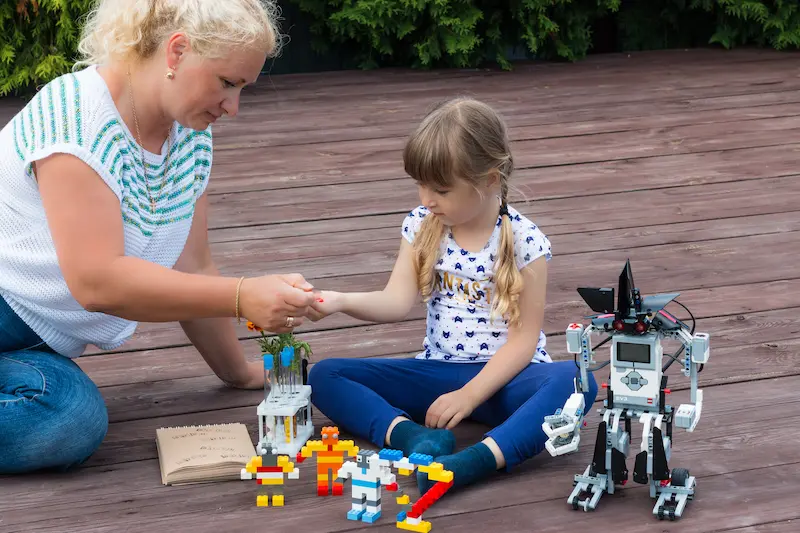
Robot camps offer exciting opportunities for kids and teenagers to delve into the world of robotics and technology. These camps are designed to provide hands-on learning experiences in various areas.
- Educational Robot Camps:
These camps focus on providing hands-on learning experiences where participants can build and program robots. They often follow a structured curriculum that introduces participants to robotics concepts, coding, and engineering principles.
- STEM Robotics Camps:
These camps combine robotics with science, technology, engineering, and mathematics (STEM) activities. Participants engage in projects that encourage problem-solving, critical thinking, and creativity while exploring various STEM disciplines.
The robotics camp offers an exciting hands-on experience for young minds interested in engineering and technology.
- Competition-Based Robot Camps:
These camps are designed for participants who are interested in robotics competitions. Participants work in teams to design, build, and program robots to compete in various challenges and events, fostering teamwork and strategic thinking.
- Advanced Robotics Camps:
Geared towards participants with prior experience in robotics, these camps delve into more complex concepts and advanced technologies. Participants may work with cutting-edge robotics platforms and explore emerging fields like artificial intelligence and autonomous systems.
- Maker and DIY Robot Camps:
In these camps, participants focus on building robots from scratch using basic materials, electronics, and recyclable components. It encourages creativity, innovation, and resourcefulness.
Age-Specific Robot Camps
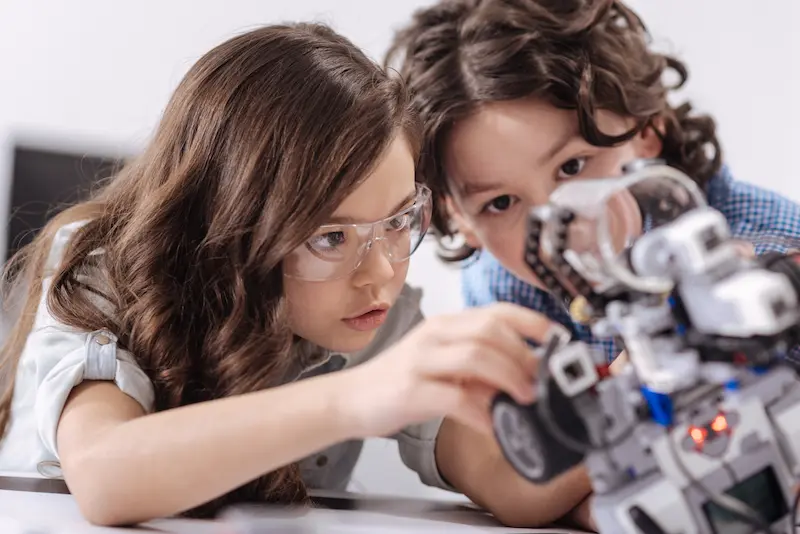
Robotics Camps offer several benefits and serve different purposes to kids of varying ages. Let’s see how Robotic Camps nourish young minds of different age groups:
Robotics Camps for Young Kids (Ages 5-8)
For our youngest explorers, aged 5-8, Robotics Camps for Young Kids offer a fun-filled introduction to the world of robots. Through interactive and engaging activities, they learn the basics of programming and problem-solving.
Robotics Camps for Tweens (Ages 9-12)
For tweens, aged 9-12, our Robotics Camps provide a perfect blend of creativity and learning. Participants dive deeper into programming concepts, building their own robots, and taking on exciting challenges.
Robotics Camps for Teens (Ages 13-17)
Teens, aged 13-17, can embark on an advanced journey at Robotics Camps for Teens, where they design and construct sophisticated robots, pushing the boundaries of technology.
With robotics for kids 5 years old, they can build their own robots and learn about problem-solving and creativity.
Our expert instructors foster a nurturing environment, empowering every participant to embrace their passion for robotics and science. Join us at the robot camp and spark your child’s curiosity and innovation today!
Programming Languages Used in Robot Camps

In robot camps, various programming languages are used to teach and implement robotics and automation. Here’s a list of some commonly used programming languages in robot camps:
- Python: Python is widely used in robotics due to its readability and simplicity. It has a variety of libraries and frameworks, such as ROS (Robot Operating System), that make it suitable for controlling robots and handling sensor data.
- C/C++: These languages are popular choices for low-level programming in robotics. They provide better control over hardware and real-time operations, making them suitable for embedded systems and robotics platforms.
- Java: Java is often used for programming robots that run on the Android platform or for educational robotics platforms like LEGO Mindstorms.
- JavaScript: JavaScript is used in robotics for web-based interfaces, controlling robots through web browsers, and integrating with IoT (Internet of Things) technologies.
- Blockly: Blockly is not a programming language per se but a visual programming language that is commonly used in educational robot camps for beginners, especially children. It allows users to drag and drop blocks to create code visually.
Benefits of Attending Robot Camp
Attending a robot camp offers numerous benefits to young minds. Some of these are:
- Developing Critical Thinking and Problem-Solving Skills
It plays a pivotal role in developing critical thinking and problem-solving skills. Participants are exposed to challenging tasks and encouraged to analyse and strategize their robot’s actions.
- Building Teamwork and Collaboration Abilities
Robot camp fosters teamwork and collaboration, enabling attendees to conquer challenges and achieve shared objectives. The gained experience empowers students with valuable skills applicable in academics and personal endeavors.

- STEM Education:
Robot camps are designed to promote Science, Technology, Engineering, and Mathematics (STEM) education in a fun and interactive way. Participants learn the fundamentals of programming, electronics, mechanics, and problem-solving, fostering an interest in these fields.
The Role of Robotics in the Future
Robot camps play a pivotal role in shaping the future. Let’s look at some of the ways:
- Education and Learning: Robotics can be a fun and interactive way for kids to learn various subjects, including science, technology, engineering, and mathematics (STEM). By working with robots, kids can grasp complex concepts in a hands-on manner, making learning enjoyable and effective.
- Skill Development: Engaging with robotics fosters the development of critical skills such as problem-solving, creativity, and logical thinking. Kids can design, build, and program robots, encouraging innovation and boosting their cognitive abilities.
- Career Opportunities: As robotics and automation become integral to various industries, kids exposed to robotics at an early age may develop a keen interest in pursuing careers in robotics engineering, artificial intelligence, and related fields.
- Social and Emotional Learning: Working with robots in a team setting can promote social skills, communication, and collaboration among kids. It also teaches them patience and perseverance as they troubleshoot and improve their robot creations.
- Exploration and Curiosity: Robotics offers an opportunity for kids to explore and satisfy their curiosity about the world of technology. Understanding how robots work can spark their interest in discovering the fascinating aspects of robotics and its applications.
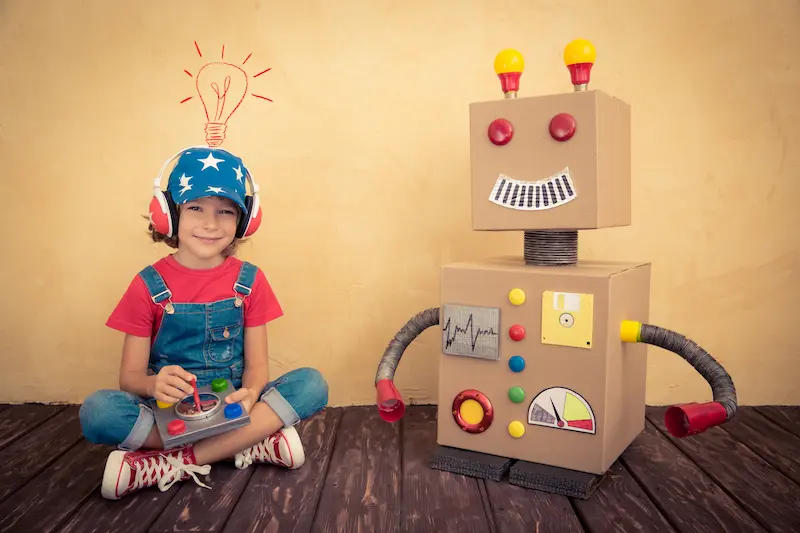
Factors to Consider When Selecting a Robot Camp
When selecting a robot camp, there are several important factors to consider to ensure a valuable and enjoyable learning experience. Here are some key factors to keep in mind:
- Curriculum and Content: Check the camp’s curriculum to ensure it covers relevant and age-appropriate topics related to robotics. Look for hands-on activities, programming, and practical applications to enhance learning.
- Instructors and Staff: Investigate the qualifications and experience of the camp instructors. Experienced and knowledgeable instructors can significantly impact the quality of the learning experience.
- Safety Measures: Safety should be a top priority. Ensure that the camp follows proper safety protocols, provides a safe learning environment, and uses appropriate tools and equipment.
- Age Group and Skill Level: Verify if the camp is suitable for your child’s age and skill level. Some camps cater to beginners, while others might be more advanced and better suited for those with prior experience.
- Class Size: Smaller class sizes often lead to more individual attention and a better learning experience. Consider camps with a favourable student-to-instructor ratio.
- Facilities and Resources: Check the camp’s facilities and resources. Sufficient access to robotics kits, tools, and computers is essential for hands-on learning.
- Reviews and Testimonials: Look for reviews and testimonials from previous participants and their parents. This can provide valuable insights into the camp’s strengths and weaknesses.
- Camp Duration and Schedule: Consider the camp’s duration and schedule. Ensure it aligns with your availability and doesn’t clash with other important commitments.
- Learning Outcomes: Determine the camp’s learning outcomes and objectives. Assess whether they align with your child’s interests and educational goals.
- Additional Activities: Some camps offer supplementary activities, such as competitions, field trips, or guest lectures, which can enhance the overall learning experience
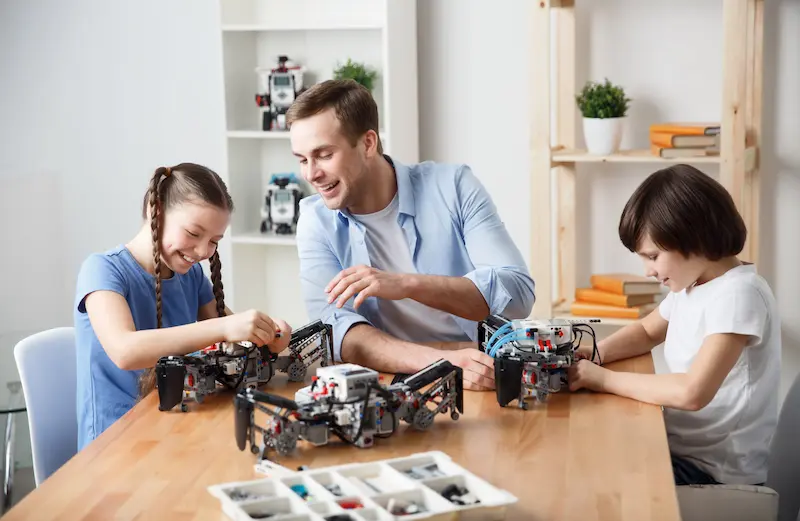
Conclusion
Robot Camp provides an unforgettable experience, fostering innovation, critical thinking, and introducing young minds to the captivating world of robotics. Participants leave enriched and enthusiastic, ready to shape the future with newfound skills. A transformative platform igniting passion for technology and exploration in attendees’ hearts.
With interactive games and colorful visuals, programming for kids becomes both educational and fun.
Explore the BrightCHAMP blog page to discover educational insights, tips, and strategies to enhance your child’s learning experience.
Frequently Asked Questions (FAQs)
A1. The suitable age for robot camp varies, but typically it’s recommended for children aged 8 to 17.
Q2. Do I need prior robotics knowledge to attend a camp?
A2. No prior robotics knowledge is required to attend most robot camps; they cater to beginners and enthusiasts alike.
Q3. How can robot camp benefit my child’s education?
A3. Robot camps can benefit your child’s education by fostering problem-solving skills, creativity, and STEM understanding in a fun and interactive environment.
Q4. Are there any girls-only robot camps available?
A4. Yes, there are girls-only robot camps available to encourage diversity and inclusion in STEM fields.
Q5. How do I apply for a scholarship?
A5. To apply for a scholarship, check the camp’s website for specific application details and deadlines.

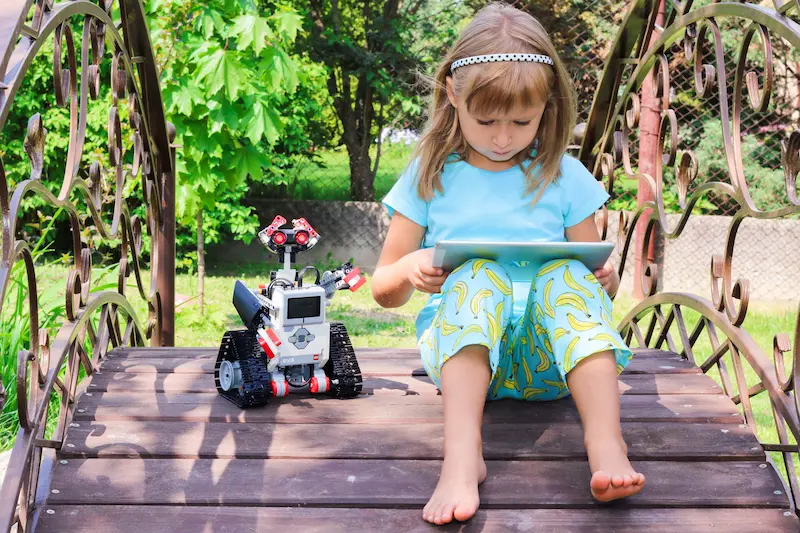
 We are an army of educators and passionate learners from BrightChamps family, committed to providing free learning resources to kids, parents & students.
We are an army of educators and passionate learners from BrightChamps family, committed to providing free learning resources to kids, parents & students.



